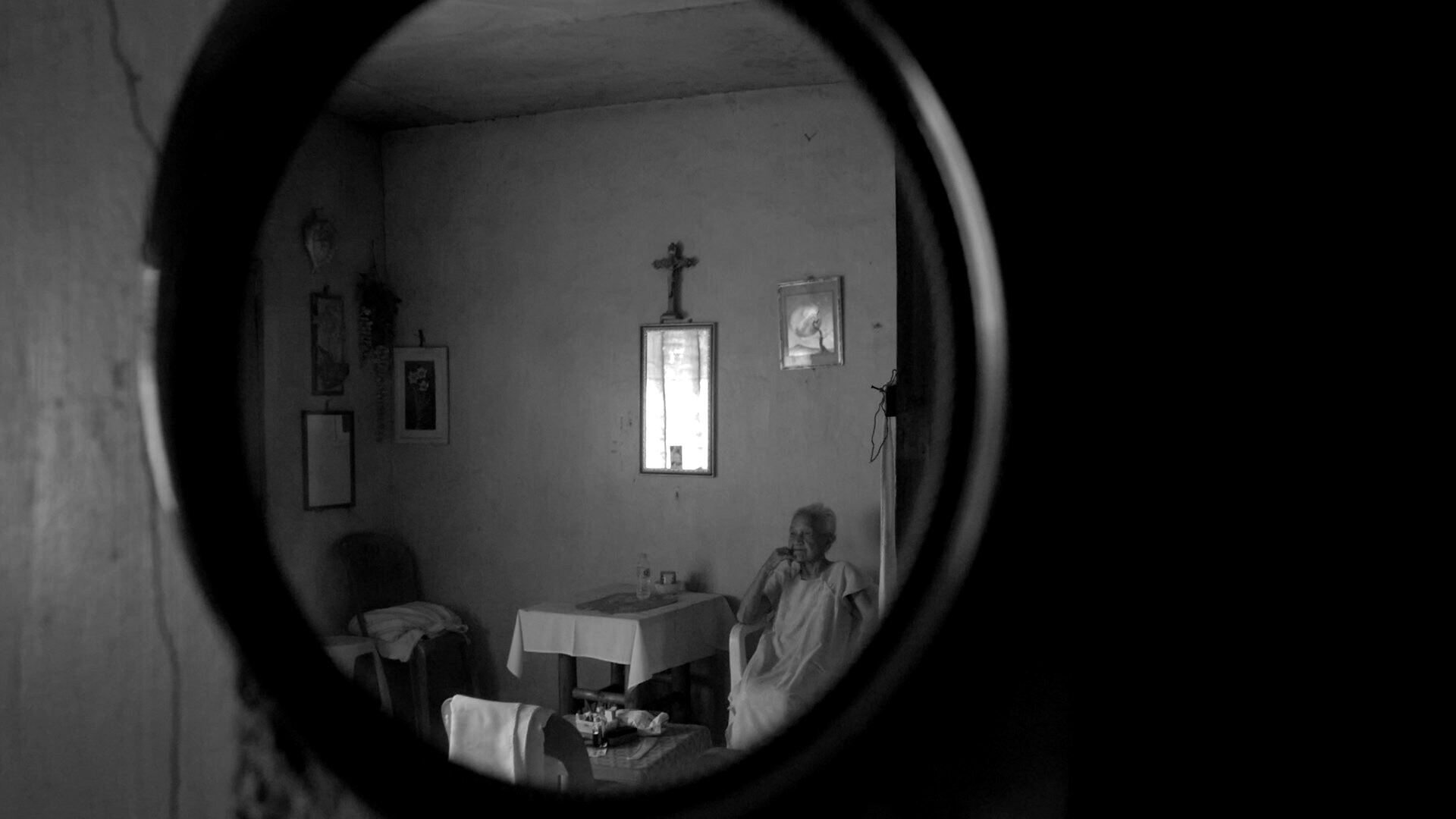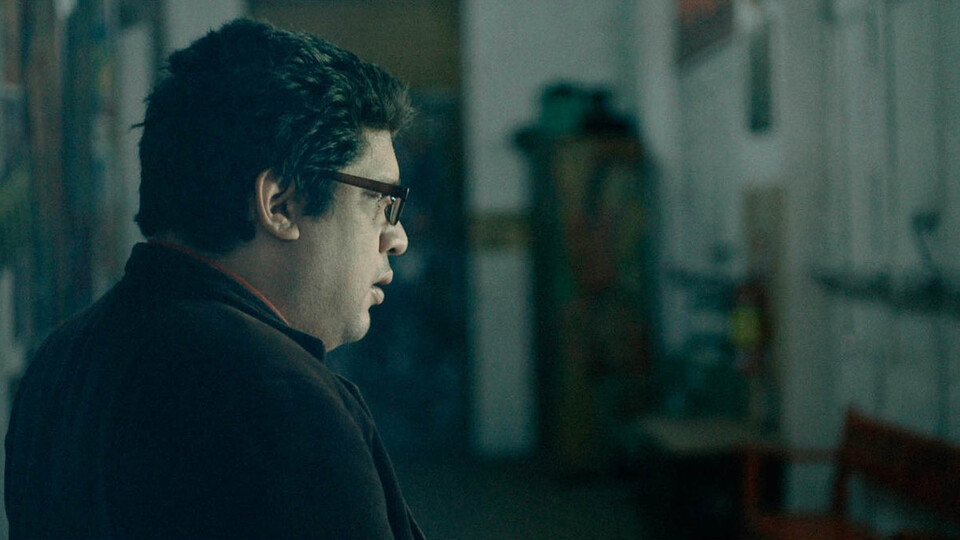Fading
Watching Liryc Dela Cruz’s slow cinema documentary Notes from Unknown Maladies is like watching a Lav Diaz film. These two Filipino directors are close professionally, having collaborated several times, as well as in their worldview and minimalist style, which lend their works an almost metaphysical quality. The haunting, impeccably composed monochrome shots follow from afar Cruz’s mentally ill grandmother, transforming the mundane reality of an old woman into ritual. The camera’s observer stance intentionally avoids details that would draw attention away from the whole. This arm’s-length approach to the subject allows the director to concentrate on the mise-en- scène. The human element becomes part of the still life of an old apartment, a scene prop much like the religious icons, the massive cross on the wall, the antique furniture and the numerous mirrors. Fits of mental illness intrude on this shrine, frightening and disturbing, their incoherent, angry rambling blending memory and delusion.
The film’s soundtrack cut out for several minutes during the screening, and was replaced by the sounds of shuffling feet as the audience left en masse. It remains unclear whether the viewers’ loss of interest was due to the technical difficulties or the film’s idiosyncratic direction and timing. It is not uncommon for slow cinema to test the audience’s patience with its pacing, shot duration, and the general lack of guidance provided by the direction. At last year’s Ji.hlava IDFF, a similarly unprepared audience was likewise caught unawares by Fred Kelemen’s Sarajevo Songs of Woe. Those who were expecting Béla Tarr’s long-term director of photography to serve up a film similar to The Turin Horse or Sátántangó were sorely disappointed. Cruz’s film, too, begs the question of what exactly the audience expects from a work dealing with old age and mental illness. The author refuses to bombard the viewer with emotional distress or exploit portrayals of suffering. Rather, the film is a sensory study of the living space of an old woman, and an invitation to meet the past and the author. Despite the weighty topic, the entire work is suffused with Cruz’s love for his grandmother, whose gradual “fading” the film sensitively captures. Her fate is a metaphor for Filipino society as a whole, suffering the consequences of the tyranny of Ferdinand Marcos. Her madness is the madness of the nation, and the atrocities of the past may return if the sickness of forgetting takes hold.



